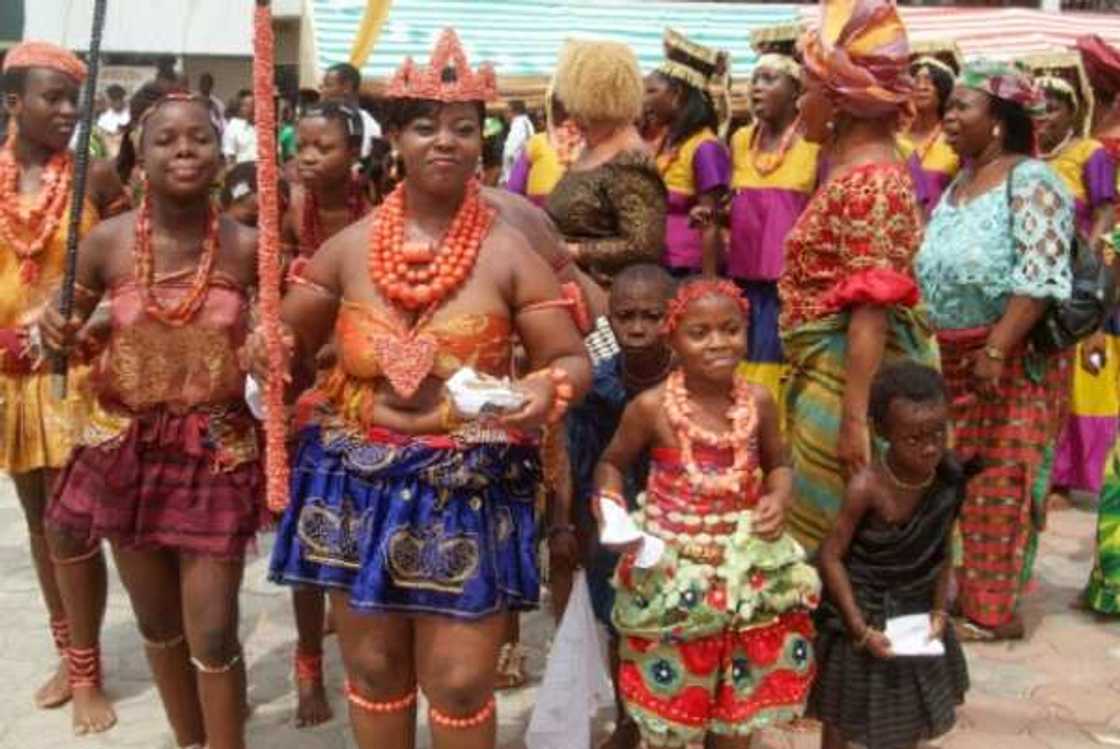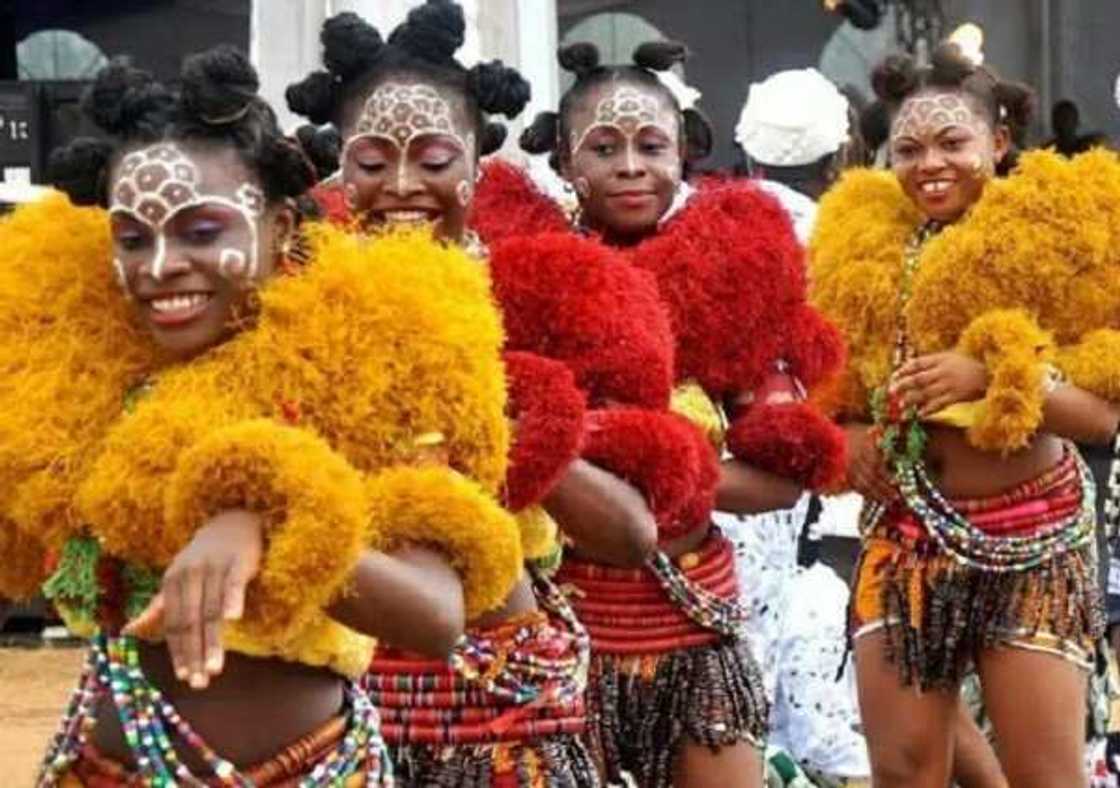Retro: Interesting things to know about the Calabar fattening rooms
In today's society, many intending brides often go the extra miles to look their best for their big day. This includes going on diet plans, hitting the gym and even going under the knife all in a bid to look fit and have the right curves on that day. Well, the reverse was the case back in the days of the glorified 'fattening rooms' in Calabar.
In certain cultures in Nigeria, one of the things that makes a woman beautiful enough to be taken as a bride is her physique. A lot of emphasis is placed on the size of a woman as that determines if she is befitting or not hence the belief; the bigger a woman is, the more healthier she is.
This appeared to be the case with the Efik people of Calabar in Cross River state and their practice of 'bride fattening' in the fattening rooms known as Nkugho. Although now a dying practice, it continues to be a thing of pride for some people. The fattening room is a place young women are prepared for womanhood.
A bride been accepted into the fattening rooms is still considered a thing of honour because acceptance into the fattening room was viewed as a privilege as it was a demonstration of virtue, sexual purity and proved chastity.
READ ALSO: Personal letter from the Editor-in-Chief of Legit.ng (former NAIJ.com)

Source: UGC
A young girl due to enter the fattening room is usually mandated by her father to do so. The father of the girl pays what is called 'Eme' (coral beads) to appease 'Nku'; the river goddess of the house, before she is accepted into the fattening room.The concept is to show that the parents of the girl are wealthy enough to give their daughter a good life.
Once in the fattening room the girls are kept away from their family members and friends, the only visitors allowed are the elderly women in the community who come to pass on lessons on marital etiquette and acceptable social customs and behaviour. The girls are also fed heavy meals rich in carbohydrate and fat. Sometimes, the girls do not find this process pleasant as they have to consume the food regardless of their appetite.
READ ALSO: How Mary Slessor became the white queen of Calabar
They are also given all-round beauty treatment from head to feet, using what is called 'ndom' (native chalk) and other massage oils made from natural plants. The training and beauty therapy is carried out over a period of one month or more while the girls are each housed in seclusion away from the public as they undergo preparation for marriage and womanhood. Before the end of their stay in the fattening room the girls are circumcised by their mothers this is to ensure she has limited sexual activity and remains chaste till marriage, it also helps her remain faithful in her marriage.

Source: UGC
At the end of the Nkugho the girl is ceremoniously revealed to the community to show how big and beautiful she is now, well wishers and potential suitors are also invited to watch her dance.
The Ibibio people of Akwa Ibom state also practice the fattening room tradition but refer to theirs as 'Mbopo'
PAY ATTENTION: Get the Latest Nigerian News on Legit.ng News App
A 2007 BBC interview with an Efik prince revealed that the men also considered it a thing of wealth and status. For Prince Edem, the social importance of the fattening rooms is very much valid. He had this to say, "People will think I am not rich... If a woman is not fat and has not gone through that process she does not qualify for marriage." He then went on to explain his 'revulsion' for slim women, clarifying that he could never marry one as slim women hold no appeal for him.
These days, however, many brides are rejecting the practice as it not only pose as a great health hazard, the idea of fat translating to wealth no longer appeals to many women who would rather stay in shape.
HELLO! NAIJ.com (naija.ng) upgrades to Legit.ng We keep evolving to serve our readers better.
African Proverbs and Their Meanings | Legit TV
Source: Legit.ng


